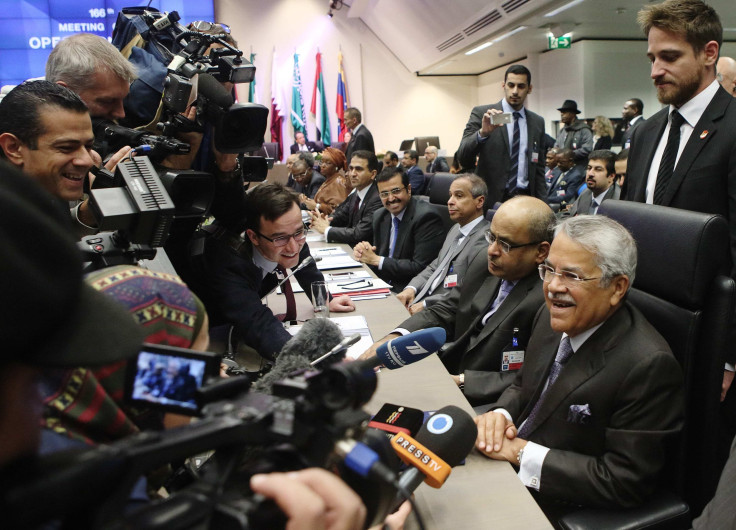Saudis Block OPEC Output Cut, Oil Price Sinks Further

VIENNA (Reuters) - Saudi Arabia set the stage for more blood-letting on oil markets after blocking on Thursday calls from poorer members of the OPEC oil exporter group for output cuts to arrest a slide in crude prices.
Benchmark Brent oil fell more than $4 to $73.50 a barrel on fears that the global oversupply will build up in coming months as Saudi Arabia kept silent about what would prompt it to consider production cuts.
With an OPEC statement making no mention of any extraordinary meeting or a need for members to stop overproducing, Thursday's decision represents a major shift in the group's policies away from its usual drive to defend prices.
The outcome effectively means a battle for market share between OPEC and non-OPEC countries as a boom in U.S. shale oil production and weaker economic growth in China and Europe have already sent crude prices down about a third since June.
"It was a great decision," Saudi Oil Minister Ali al-Naimi said as he emerged smiling after around five hours of talks.
Asked whether OPEC had decided not to cut production and to roll over existing output policies, he replied: "That is right".
Venezuelan Foreign Minister Rafael Ramirez left the meeting visibly angry and declined to comment on the outcome.
Wealthy Gulf states have made clear they are ready to ride out the weak prices that have hurt the likes of Venezuela and Iran - OPEC members that pressed for output cuts to stabilize the market and ease pressure on their budgets, but cannot afford to make any themselves.
A price war will also seriously hurt top non-OPEC exporter Russia, which has clashed with Saudi Arabia over Moscow's support for Syrian President Bashar Assad. Russia is already suffering from Western sanctions over its actions in Ukraine and needs oil prices of $100 per barrel to balance its budget.
The Organization of the Petroleum Exporting Countries accounts for a third of global oil output.
If it were to cut exports without similar action by its competitors, it would lose further market share, including to North American shale oil producers.
Gulf producers could withstand for some time the market-share battle that could drive down prices further, thanks to their large foreign-currency reserves. Members without such a cushion would find it much more difficult.
Kuwaiti Oil Minister Ali Saleh al-Omair said OPEC would have to accept any market price of oil, whether it were $60, $80 or $100 a barrel. Iraq's oil minister, Adel Abdel Mehdi, said he saw a floor for oil prices at $65-70 per barrel.
A price war might make some future shale oil projects uncompetitive due to high production costs, easing competitive pressures on OPEC in the longer term.
"We interpret this as Saudi Arabia selling the idea that oil prices in the short term need to go lower, with a floor set at $60 per barrel, in order to have more stability in years ahead at $80 plus," said Olivier Jakob from Petromatrix consultancy.
"In other words, it should be in the interest of OPEC to live with lower prices for a little while in order to slow down development projects in the United States," he added.
The North American shale boom has taken many at OPEC by surprise.
"The U.S. is producing in a very, very bad manner. Shale oil, I mean it is a disaster from the point of view of climate change and the environment," Foreign Minister Ramirez, who represents Venezuela at OPEC, said.
OPEC agreed to meet next on June 5, 2015.
© Copyright Thomson Reuters 2024. All rights reserved.











